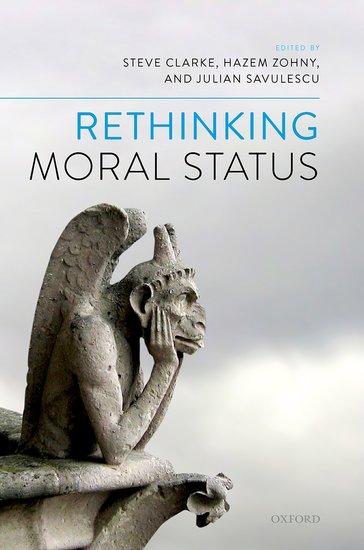Bücher versandkostenfrei*100 Tage RückgaberechtAbholung in der Wunschfiliale
Ihr Ostergeschenk: 15% Rabatt auf viele Sortimente11 mit dem Code OSTERN15
Jetzt einlösen
mehr erfahren
Zustellung: Do, 24.04. - Di, 29.04.
Versand in 2 Wochen
VersandkostenfreiBestellen & in Filiale abholen:
Scientific and technological advancements have allowed us to create beings that blur the distinctions between human, non-human animal, and non-biological beings, which challenge our assumptions about moral status. This volume explores our responses to these challenges and reflects on ordinary presuppositions and intuitions about moral status.
Inhaltsverzeichnis
- 1: Steve Clarke and Julian Savulescu: Rethinking our Assumptions about Moral Status
- Section I. The Idea of Moral Status
- 2: Jeff McMahan: Suffering and Moral Status
- 3: David DeGrazia: An Interest-Based Model of Moral Status
- 4: Josh Shepherd: The Moral Status of Conscious Subjects
- 5: F.M. Kamm: Moral Status, Person-Affectingness, and Parfit's No-Difference View
- 6: Elizabeth Harman: The Ever Conscious View and The Contingency of Moral Status
- 7: Ingmar Persson: Moral Status and Moral Significance
- 8: Udo Schuklenk: Moral Recognition and the Limits of Impartialist Ethics: On Androids, Sentience and Personhood
- 9: Thomas Douglas: Is Moral Status Good for You?
- Section II. Specific Issues about Moral Status
- 10: Ruth Faden, Tom Beauchamp, Alan Regenberg, and Debra Mathews: Toward a Theory of Moral Status Inclusive of Nonhuman Animals: Pig Brains in a Vat, Cows versus Chickens, and Human-Nonhuman Chimeras
- 11: Jason Robert and Françoise Baylis: Revisiting Inexorable Moral Confusion About the Moral Status of Human-Nonhuman Chimeras
- 12: Sarah Chan: Chimeras, Superchimps and Post-persons: Species Boundaries and Moral Status Enhancements
- 13: Ben Sachs: The Weak Connection between Moral Status and Legal Status
- 14: Russell Powell, Irina Mikhalevich and Allen Buchanan: How the Moral Community Evolves
- 15: Julian Koplin, Olivia Carter, and Julian Savulescu: Moral Status of Brain Organoids
- 16: Walter Sinnott-Armstrong and Vincent Conitzer: How Much Moral Status Could Artificial Intelligence Ever Achieve?
- 17: David R. Lawrence and John Harris: Monkeys and Moral Machines
- 18: Carl Shulman and Nick Bostrom: Sharing the World with Digital Minds
Produktdetails
Erscheinungsdatum
25. Oktober 2021
Sprache
englisch
Seitenanzahl
352
Herausgegeben von
Steve Clarke, Hazem Zohny, Julian Savulescu
Verlag/Hersteller
Produktart
gebunden
Gewicht
708 g
Größe (L/B/H)
237/163/27 mm
ISBN
9780192894076
Entdecken Sie mehr
Bewertungen
0 Bewertungen
Es wurden noch keine Bewertungen abgegeben. Schreiben Sie die erste Bewertung zu "Rethinking Moral Status" und helfen Sie damit anderen bei der Kaufentscheidung.









